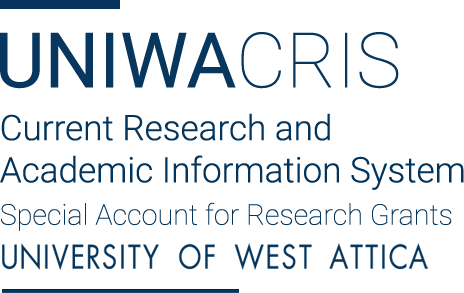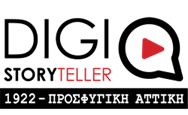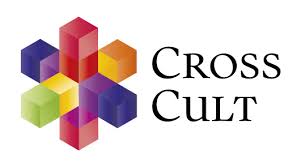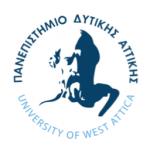Research Funding Projects
Forging and cultivating the integration of scientific knowledge with practical applications for societal advancement, the IML takes a leading role and engages in numerous research funding initiatives. Subsequent sections will delve into detailed insights regarding each research project separately.
UNIWACRIS

Title: Integrated Information System for the Assessment of Academic and Research Activity at the University of West Attica
Acronym: UNIWACRIS
Start: October 2024 – End: –
Funding: “Special Account for Research Funding UNIWA”
Website
The UNIWACRIS project focuses on the development of a comprehensive information system aimed at evaluating the academic and research activities of the University of West Attica. By integrating DSpace-CRIS for research data management with Bibliometris for retrieving and processing bibliometric information, this system enhances the collection, organization, and dissemination of the university’s research output. The infrastructure facilitates integration with international databases and third-party systems, increasing visibility and supporting data-driven decision-making. The project was designed and executed under the scientific supervision of the Information Management Laboratory, with technical support from Dataly Tech and funding from the Special Account for Research Funds (ELKE) of the University of West Attica.
ILSaS+


Title: E-GOVERNANCE ACTIONS ‘Expansion and Enrichment with New Services of the Central Library Infrastructure for Providing an Integrated Library System as a Service (ILSaS+) UNIVERSITY OF WESTERN ATTICA
Acronym: ILSaS+
Start: 01-09-2023 – End: 30-11-2024
Project Reference: 6004785
Programme: Digital Transformation 2021-2027 | Project Inclusion Decision no. 1367/07-06-2024 | MIS 6004785
Budget: 2.398.750,00 EUR
Website: https://ilsas.alis.uniwa.gr/
The project’s primary goal is to transition to a new environment of the Central Infrastructure to offer an Integrated Library System as a Service – ILSaS+. This transition will not only expand, enhance, and enrich the collaborative environment of libraries with new services, but also provide libraries with simultaneous and increased autonomy in parameterizing their systems. This means that while libraries can customize their systems to their specific needs, they can still benefit from collaborative, centralized cataloguing and documentation of materials. The new ILSaS+ environment will also maintain features such as the central facility of necessary computing equipment (ILSaS+ Hub), support and maintenance by an external company (second level of support), and the Central Support Team (first level of support), as well as ongoing user education, centred on the operation of the Cataloging and Technical Issues Committees facilitated by library staff.
To meet the essential requirements, the implementation of new software for ILSaS+ is of utmost importance. With its specific attributes, including its open-source nature and support for a flexible, hybrid architecture, this software will be the backbone of the new ILSaS+ environment. It will enable a central installation of the software (Central Catalog), and individual installations for each participating library (Local System).
This implementation will also include the installation of a new modern computing infrastructure at the University of West Attica (UNIWA), along with transferring existing ILSaS data from the infrastructure of GRNET to ensure continuity and reliability.
The project is structured into four subprojects:
- Subproject 1: New ILSaS+ Integrated Library System as Service [Duration: 19 Months, Funding: 1.000.000 €]
- Subproject 2: New Advanced Discovery Service for Academic Libraries’ Scholarly Content from Multiple Sources (Discovery Services) [Duration: 11 Months, Funding: 400.000 €]
- Subproject 3: Computational hub ILSaS+ [Duration: 6 Months, Funding: 290.000 €]
- Subproject 4: Value-added services – Central Support Team [Duration: 22 Months, Funding: 708.750,00 €]
DIGISTORYTELLER

Title: Digital Storyteller: Attica of the refugees
Acronym: DIGISTORYTELLER
Start: August 2022 – End: December 2023
Programme: Operational Program “Attica 2014-2020
Funding: “RESEARCH AND INNOVATION COLLABORATION IN THE REGION OF ATTICA”
Website: www.digistoryteller.eu
DIGISTORYTELLER is a digital tour guide, available for all mobile services, around the areas of Attica where refugee flows, from 1922 (neighborhoods and parts of downtown Athens related to the arrival of refugees from Asia Minor) until 1973-74 were established. This app will be properly designed to integrate more recent stories into the future, promoting and exhibiting the unknown history of Athens. The aim of this project is to bring the multicultural character of Athens to the fore and at the same time to present the interesting aspects of the city development as well as its neighborhoods, in different periods of its history. Emotional approach emphasis is being placed on highlighting common migration and settlement experiences. Therefore, first priority is the promotion of stories as they were recounted by the refugees themselves. Through different aspects and items of everyday life, like music, taste, architectural and topographical reconstruction of the place, the iconic revival of this experience will be possible. Existing repositories will be the source of the abovementioned material which will also be enhanced with personal storytelling. Photos, postcards, audio-visual recordings, sketches, 3D objects, will also accompany the storytelling and thus they will ideally place the visitor in the right place and time. This app will be available on tablets and smartphones while a more concise version will also be available online. When the visitor is in place, her/his position will be automatically detected and the relevant material (stories, photos, sketches, 3D objects –plans) will be uploaded. A crowdsourcing platform will be connected to DIGISTORYTELLER, where additional info, material, data may be continuously uploaded. In order to achieve a fully integrated and interactive experience, an augmented reality edition based on photographic material will accompany DIGISTORYTELLER. This refers to a printed book that will be coupled with an augmented reality application which can be accessed through a free mobile app on any smartphone or tablet. The book (along with possible byproducts, such as calendars, cards etc.) will also be available for sale in exhibitions and events that will be organized during the project’s implementation, dedicated to the influx of refugees from Asia Minor.
ARDION
Title: Development of a platform for the design of innovative guides for the Archeological site of Ancient Dodona offering new experiences to the visitors through augmented reality, gamification and location based services.
Start: 01-06-2022 – End: 30-04-2024
Programme: National funding framework “Research, Develop and Innovate”
Budget: 585.705€
| The Archeological site of Ancient Dodona is a very important Archeological site for Greece. The visitors arriving each year are more than 40.000 and their number has been steadily increasing from 2010 (21.231). Through the ARDION project, these visitors will be offered new experiences through new innovative technologies integrated in mobile guides (augmented reality, location based services, games, gamification mechanisms, 3D representations of monuments). In parallel the apps will be gathering anonymous data for analyzing the visitors’ behavior in order the guides to be constantly upgraded and in general the services of the archeological site to be continuously improved. Research and development in the framework of the project will lead to the development of an online platform for the creation of archeological site guides. The platform will be fed up with related to Ancient Dodona content efficiently organized to assist users in the development of the guides. Experts and/or individual users, using the platform, will be able to create and publish their own guides with gamification, augmented reality, 3D content and location based services. The information and the guides that will be developed in the framework of the project by experts appointed by the consortium partners and those guides that will be developed collaboratively by teams of users during a summer school (organized by the project partners), will be offered for free. For the participating SMEs, the exploitation of the Dodona archeological site as a ‘testbed’ for the development of an innovative and high competitive product is the expected benefit. The SMEs following the open innovation model, aim to present an open platform that will gather a growing network of users, suppliers and consumers. ARDION progresses beyond the state of the art in two areas (a) the development of online self-publishing tools for the development or cultural guides as native apps for IOs and Android devices, and (b) the development of interractive narrative tools using interactive behavioral trees for delivering of coherent storylines. Recent developments in augmented reality technologies have opened a new field of research in the interactive narrative domain in which the project will contribute. ADRION will offer and open platform for the development of interactive guides for archeological sites with augmented reality, gamification, interactive storytelling support, location based services and mini-games. The goal of the project is the incorporation in the project development process of the open innovation principle and the exploitation of new knowledge in order to produce new added value services for a differentiated culture – tourism product. |
SOSAME
Title: A prototype method of diagnosis, documentaion and demonstration – analysis of rescue excavations
Acronym: SOSAME
Start: 24/12/2019 – End: 23/10/2023
Programme: Actions of National Range – Special Actions “Aquaculture” – “Industrial Materials” – “Open Innovation in Culture” | “COMPETITIVENESS, ENTERPRISE & INNOVATION” (EPAnEK)“
Budget: 593.840€
The project aims at the diagnosis, documentation and demonstration of the rescue excavations by developing a flagship innovative methodology that will be immediately exploitable by the Ephorate of Antiquities of Evia – which can be used by other Ephorates of Antiquities and similar actions in Greece and abroad. The results of the innovative methodology will be displayed through a demonstrative installation at the premises of the Archaeological Museum of Chalkida “Arethousa”, offering to the people the opportunity to follow and participate through virtual reality in life-saving excavations in the region of Evia through an open-view laboratory whose content will be continuously enriched by new life-saving excavations. Visitors to the pilot installation, apart from the experiential experience of participating in rescue excavations, will be able to visit virtual archaeological sites, make a tour and study their findings even though they cannot visit them in the real world since they are no longer accessible due to the fact that they are in progress or technical works have been done over them. The project will enrich the scientific community’s tools for approaching and documenting rescue excavations, taking into consideration issues related to their specific characteristics, such as the limited, usually pressing, duration of the rescue excavations, their partially revealed space, which is determined and imposed by factors external to the archaeological data, and, consequently, the fragmentary nature of the archaeological information they provide (through the fragments (usually archaeological discoveries) for wider areas that in the past may have constituted spatial units, the rotation of archaeologists, the excavator subjective assessment, the limited time of processing and documentation of the excavated data, and limited opportunities for demonstration. The pilot application of the methodology will be applied to at least two rescue excavations during the project and will create the first documented three-dimensional data that will be available to the prospective researcher. In addition, the knowledge base that will be created will allow the analysis of broader geographical areas. Finally, visitors to the museum will be able to view the rescue excavations that take place in the geographical area of the Ephorate and be documented with this innovative methodology using virtual reality, offering them the opportunity to monitor the excavation. Each rescue excavation will be a new three-dimensional digital educational application. The above descriptive, multi-dimensional and three-dimensional information will be the basic material for the development of educational digital applications to students and “explorers” tourists in narrative-based using VR virtual reality technology, and the audience will experience the rescue excavation. The documentation will be developed based on the approach of the Linked Open Data, where each described term / concept will be uniquely identified within the universal Internet environment and will be linked to different relationships (thematic, time, geographical, etc.) with the other terms, creating an ontology of concepts. There will also be the opportunity to develop educational narratives in the virtual area of the excavation that will present the methodology of the rescue excavation with real examples.
ARTEST

Title:Enhancing education programmes in Arts and Humanities via European STEM methods and tools
Acronym: ARTEST
Start: 07/04/2021 – End: 14/01/2024
Programme: Erasmus + programme
Website: https://www.artest-project.eu
The ARTEST project focuses on transforming humanities education in Mongolia by aligning with European standards, research, and practices to meet the evolving demands of the labour market through digital approaches. The project aims to create an innovative educational methodology combining humanities, digital humanities, and STEM. It also plans to train higher education institution teachers in modern European techniques to support their professional development. Additionally, ARTEST will establish a multidisciplinary Master’s degree program that includes opportunities for international student exchanges. A central element of the initiative is the creation of a Digital Lab, a virtual platform designed for small-scale international projects that help preserve and promote cultural heritage. Lastly, the project seeks to foster innovation in the humanities, enhanced by STEM methodologies and tools, through collaborations with the labour market and the Digital Lab’s joint projects.
AMREP
Title: Digital platform for the development of educational applications focused in cultural heritage tourism with the use of augmented reality, mixed reality and Gamification.
Acronym: AMPER
Start: 25/07/2018 – End: 25/07/2022
Programme: National program Research Creativity and Innovativeness
Budget: 607.824€
Project ID: Τ1ΕΔΚ-02168
The main objective of the project is the development of an innovative digital platform for the development of educational applications focused in cultural heritage tourism with the use of augmented reality, mixed reality and gamification, applied to the excavation of the archaeological site of Amykles (an important political and religious center of Sparta) with the main goal of transferring the experiential learning experience through focused educational methodology of the excavation of an archaeological site to students and “cultural” tourists. The applications will be dynamic and will be created and managed by a central documentation platform in a three-dimensional environment that will have the following two subsystems: a) a mixed reality training modules development subsystem b) an educational narrative subsystem utilizing augmented reality and gamification. The platform will offer an API for the development of educational applications focused in cultural heritage tourism with the use of augmented reality, mixed reality and gamification.
EDUCABILITY

Title: BUILDING THE CAPACITY OF EDUCATORS & LIBRARIANS IN INFORMATION LITERACY
Acronym: EDUCABILITY
Start: 01-12-2020 – End: 30-11-2022
Project Reference: 2020-1-CY01-KA202-066032
Programme: Erasmus+ / Cooperation for innovation and the exchange of good practices / Strategic Partnerships for vocational education and training
Budget: 164.227 EUR
Website: https://educability.cut.ac.cy/
The EDUCABILITY Project aspires to be a conceptually, strategically, technologically and educationally pioneering endeavor in answering specific urgent demands of the current Information and Knowledge Society. It will adopt a holistic end-user driven approach for accomplishing the following objectives:
- Development of a freely available Information Literacy Training Package – ILTP. This will be accomplished by developing 6 complete curriculum concerning the following existing and emerging literacies: Critical Literacy (focused on inequalities), Digital Literacy, Mobile Literacy, Media Literacy, Data Literacy, Sustainability Literacy. Curriculum development will be based on the structural support of Information Literacy known models. by converting each curriculum’s content into 6 e-Learning Modules and by integrating them into an open-access Virtual Learning Environment (VLE); by enhancing each e-Learning Module content with open educational resources (OPR), e-content, materials, documents and media.
- Training of educators and librarians, in the core skills of Information Literacy, as a horizontal goal and in new literacies as vertical goals, which is an innovative conceptual element of this Project. The specific target group is placed in the heart of promoting the above literacies to today’s Information & Knowledge Society. The competences that they acquire will enable them to embed and apply Information Literacy and new literacies in various educational environments (formal, informal, non-formal), and in real-life settings regarding work, social and environmental activity, active citizenship, Mass Media and personal life goals. Especially librarians will develop new Information and Literacy skills to meaningfully support educators, youth and the communities they serve.
- Convergence in terms of strategy, expertise and infrastructure in Information Literacy initiatives, at a transnational level, by the compilation and approval of a Transnational Memorandum of Cooperation, Sustainability and Transferability between EDUCABILITY Project’s partners.
Α.UNI.W.A.
Title: Α.UNI.W.A. – University of West Attica Archives and Special Collections Strategic Plan
Acronym: Α.UNI.W.A.
Start: 1 April 2020 – End: 30 June 2021
Project Reference: Operational Programme Human Resources Development, Education and Lifelong Learning 2014-2020, co-financed by Greece and the European Union (European Social Fund- ESF).
Programme: co-financed by Greece and the European Union (European Social Fund- ESF).
Budget: 41.041,00 EUR
The research project focus on the development of a strategic plan for the systematic preservation and classification of historical archival material, and the appropriate management of active archival entities at the University of West Attica (UNIWA). Methodologically, research will focus on three main pillars: a) archiving policies; b) strategic plan for the development and management of archives/collections; c) technical rules and administrative processes.
The results of this research project are not only of interest to UΝΙWA. They will revive dialogue on academic archives management, a relatively neglected field in the literature, and will promote standard-setting initiatives on implementable administrative policies in academic institutions.
LEAVING SOCIAL MEDIA
Title: Leaving social media: factors affecting intentions to permanently and intermittently discontinue using social networking sites
Start: 1 April 2020 – End: 31 July 2021
Project Reference: Operational Programme Human Resources Development, Education and Lifelong Learning 2014-2020
Programme: Operational Programme Human Resources Development, Education and Lifelong Learning 2014-2020
Funding: co-financed by Greece and the European Union (European Social Fund- ESF).
Budget: 46,046.00 EUR
Given the massive degree of penetration of Social Networking Sites (SNS) on a global scale, all kinds of organizations, libraries included, have seen in social networks a first-class opportunity to promote their products and services. Opposite to opening new ways of communication, the use of SNS has been linked to several negative states –such as fatigue, discomfort, and technological stress– which further strengthen intentions to discontinue using them. Hence, user intention is of great importance to organizations’ social media marketing strategy. In this context, the purpose of the proposed research is to investigate library users’ intention to permanently or intermittently discontinue to use SNS, by developing a research model based on the Theory of Planned Behavior (TPB).
The proposed research model is extended to include factors that have been found to play a key role in the use of SNS. These factors are self-efficacy, fatigue, and three types of overload (informational, communication and social). The target population of the research is Greek library users. The primary data that will be collected via a structured questionnaire will be analyzed using Structural Equation Modeling. Overall, the proposed research aims to investigate a modern phenomenon, original not only in Information Science, but also in Social Media Marketing and Information and Communication Technologies. At the same time, the factors incorporated in the proposed research model allow for a deeper understanding of the causes and the way users decide to stop using SNS. The study results could be utilized by libraries and other information organizations for the assessment and, if necessary, for the reshaping of their user expansion and services promotion strategies.
MELTOPENLAB
Title: Documentation and Ontology of Modern Cultural Heritage Exhibits / Objects and Methods for Restoration and Maintenance, Behavioral Analysis and Creation of Personalized Visitor Experience in Museums and Multi-Cultural Sites / Open Labs
Acronym: MELTOPEN LAB
Start: 1/1/2020 – End: 21/12/2023
Programme: Actions of National Range – Special Actions “Aquaculture” – “Industrial Materials” – “Open Innovation in Culture” | “COMPETITIVENESS, ENTERPRISE & INNOVATION” (EPAnEK)
Budget: 557.064,40 EUR (Budget lab 65.612,5 EUR)
The proposed project MELTOPENLAB aims at the development and pilot operation of an innovative integrated information system for demonstration facilities such as Museums, Multi-Cultural Sites and Open Labs and focuses on the digital documentation of Modern Cultural Heritage Exhibits / Objects and methods of restoration / maintenance and presentation, creation of related ontologies and innovative ways of demonstrating them.
In this context, an Open Laboratory for innovative textile restoration / maintenance techniques will be created & equipped, ontologies of folklore essays and conservation methods will be implemented, along with a large-scale real-time visitor tracking & movement analysis system, to evaluate the interest per exhibit and overall, to capture the behavior and satisfaction of the visitor, and to create and provide a personalized presentation, entertainment and learning experience. It is a flagship project, with significant results in the field of Modern Greek Cultural Heritage, expected to bring significant technological and economic benefits to the Project Partnership and the Museum industry.
YAMP HISTORICAL ARCHIVE
Title: Documentation of the condition and determination of the technical specifications for the conservation of the technical drawings of the YAMP historical archive (EYDAP)
Acronym: YAMP Historical Archive
Start: July, 2019 End: January, 2020
Budget: 8.400 EUR
Funding: EYDAP
The YAMP historical collection is part of the collections of technical drawings owned by the Athens Water Supply and Sewerage Company (EYDAP S.A.). The survey of the collection, was commissioned by the Company to the Information Management Research Lab, Department of Archival, Library & Information Studies of the University of West Attica, Greece. The aims of the survey were the documentation of the condition of the collection, the determination of the technical specifications and the cost estimation for its conservation. The report of the survey compiles the recommended best practices for the optimization of the management (including preservation), as well as the proposed methods for the conservation of the collection.
INVENVORG
Title: Investigation of the environmental factors effects on organic materials constituting the natural and cultural heritage
Acronym: INVENVORG
Start: 2014 – End: 2019
Programme: THALIS: The co-operational program Education and Life Long Learning NSRF and co-funded by the Greek Ministry of Education and the European Union
Budget: 600.000 EUR
Thales EC-supported project INVENVORG, investigates the effects of the environmental factors on non-treated organic materials, namely bone, woolen textile, parchment, paper and wood. The project included an accelerated ageing study (with exposure to elevated temperatures and relative humidities, light and pollutants) and then a natural ageing study in monitored museums environments, followed by the statistical correlation analysis of the material properties after accelerated and natural ageing with the environmental stresses, in order to determine the real-life relative contribution of the various environmental parameters to material ageing.
CROSSCULT

Title: CrossCult: Empowering reuse of digital cultural heritage in context-aware crosscuts of European history
Acronym: CrossCult
Start: 1/3/2016 – End: 28/2/2019
Project Reference: Grant agreement ID 693150
Programme: Horizon 2020
Budget: 3.690.216,25 EUR
Website: https://cordis.europa.eu/project/id/693150
The European “CrossCult”: Empowering reuse of digital cultural heritage in context-aware crosscuts of European history” project aimed to spur a change in the way European citizens appraise History. It fostered the re-interpretation of what citizens may have learnt in the light of cross-border interconnections among pieces of cultural heritage, other citizens’ viewpoints and physical venues. It sought to increase retention, stimulate reflection and help citizens appreciate their common past and present in a more holistic manner. Technology and mobile apps used and a user-friendly and a cost-efficient tool for experience designers, museum experts and external stakeholders, was developed.

